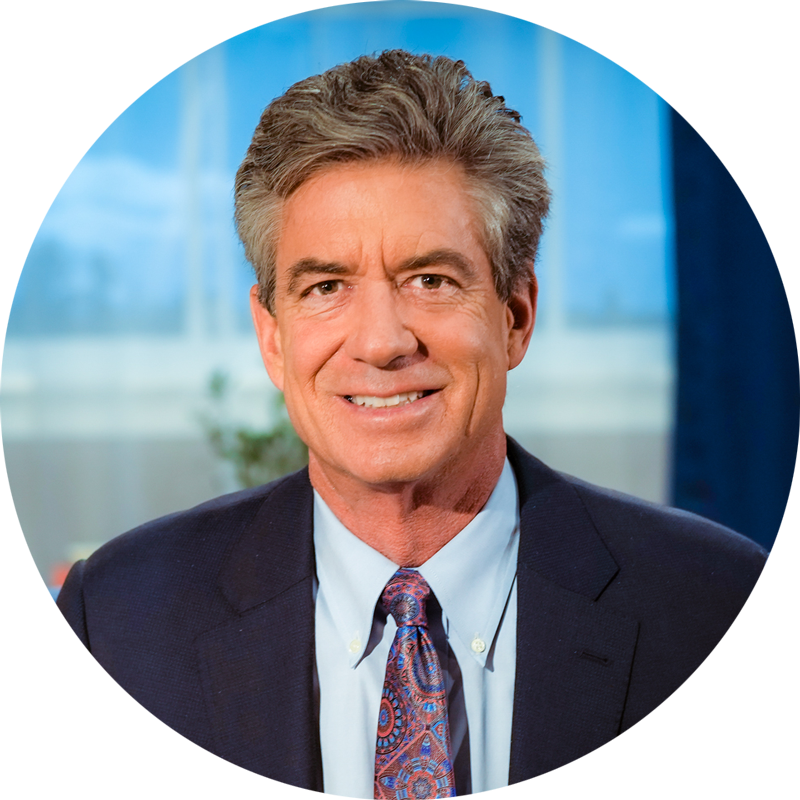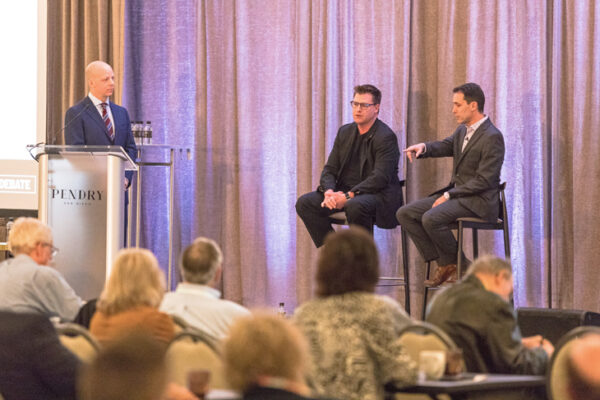NYC Cheered This Marxist Economist
- Our free market system is a blessing that provides opportunity and mutual benefit to businesses and consumers. So why are so many people in favor of socialism these days?
- Today, Alexander Green reflects on a recent debate of capitalism versus socialism.
Would you hire an architectural firm if all its buildings fell down?
Would you use an accounting firm if each of its clients went bankrupt?
Would you use a heart surgeon if every one of his patients died on the operating table?
I’m guessing your answer is no.
So you probably wouldn’t fall for the arguments of Professor Richard D. Wolff, academic, author and passionate promoter of economic fairy tales for the historically illiterate.
I met him in New York City last week.
My friend John Mackey – founder and CEO of Whole Foods – had asked me to join him and square off against Wolff and Bhaskar Sunkara, the founding editor of Jacobin magazine and author of The Socialist Manifesto: The Case for Radical Politics in an Era of Extreme Inequality, in a public debate of capitalism versus socialism.
I enthusiastically agreed.
Unfortunately, I was unable to participate because the host, Intelligence Squared – a nonprofit organization whose mission is to “restore critical thinking, facts, reason and civility to American public discourse” – informed John that his debate partner could not also be a middle-aged white guy.
Take that, white patriarchy…
(To use today’s politically correct parlance, John was told to choose a different debate partner who brought more “diversity” to the team.)
He ended up choosing the highly capable Katherine Mangu-Ward, editor-in-chief of Reason magazine, who acquitted herself well with solid arguments and an engaging 400-watt smile.
And yet… the good guys lost.
How is it possible that two smart, articulate and well-informed advocates of the free market system could not persuade a mostly young, highly educated New York audience to accept – in the words of the resolution – that “capitalism is a blessing”?
Yes, polls show that millennials and Gen Xers increasingly favor socialism.
Yet I’d like to believe a) that comes from not fully understanding what socialism really is and b) that familiarity with the basic facts would reveal the error of their ways.
It didn’t happen, even though John and Katherine did a bang-up job.
John demonstrated that capitalist nations around the world are far richer and freer than others.
He showed how capitalism has lifted billions out of poverty, promoted innovation, raised living standards, increased social mobility and extended life spans.
He also pointed out that many Scandinavian countries score higher on measures of economic freedom than the U.S. and – by their own admission – are not socialist.
Katherine made the moral case, demonstrating that capitalism is about free exchange for mutual benefit.
That’s why you hear “thank you” twice with every transaction. A buyer says “thanks” because he wants the product (or service) more than the money. The seller says the same because he is also glad to see the money change hands.
Capitalism is not a zero-sum game where one side wins and the other side loses. It’s a win-win.
Unlike government, business is about freedom and individual choice, not coercion.
If you don’t like a particular company or its policies, you don’t have to work for it, sell to it, buy from it or own its shares.
John challenged Wolff to provide an example of a single nation around the world or through history that had brought its citizens greater freedom and prosperity through socialism.
Instead Wolff began by reciting his academic qualifications.
Ordinarily, this wouldn’t be unusual.
However, the event program detailed Wolff’s impressive academic achievements. And the moderator – former ABC White House correspondent John Donvan – repeated them when introducing him.
Yet Wolff chose to cite them again.
I was reminded of astrophysicist Neil deGrasse Tyson’s remark that if you need to invoke your academic pedigree to get people to accept your argument, you need a better argument.
Wolff didn’t have one. Nor did he have the facts on his side.
But he did have a few clever lines.
Plus a terrific imagination, one where people put their faith in their moral and intellectual betters – people like him – who want to rearrange society with economic policies that have been an unmitigated disaster every time and place they’ve been tried.
Yet this New York audience cheered and applauded him. In my next column, I’ll explain why.
[adzerk-get-ad zone="245143" size="4"]About Alexander Green
Alexander Green is the Chief Investment Strategist of The Oxford Club, the world’s largest financial fellowship. For 16 years, Alex worked as an investment advisor, research analyst and portfolio manager on Wall Street. After developing his extensive knowledge and achieving financial independence, he retired at the age of 43.
Since then, he has been living “the second half of his life.” He runs The Oxford Communiqué, one of the most highly regarded publications in the industry. He also operates three fast-paced trading services: The Momentum Alert, The Insider Alert and Oxford Microcap Trader. In addition, he writes for Liberty Through Wealth, a free daily e-letter focused on financial freedom.
Alex is also the author of four New York Times bestselling books: The Gone Fishin’ Portfolio: Get Wise, Get Wealthy… and Get On With Your Life; The Secret of Shelter Island: Money and What Matters; Beyond Wealth: The Road Map to a Rich Life; and An Embarrassment of Riches: Tapping Into the World’s Greatest Legacy of Wealth.






